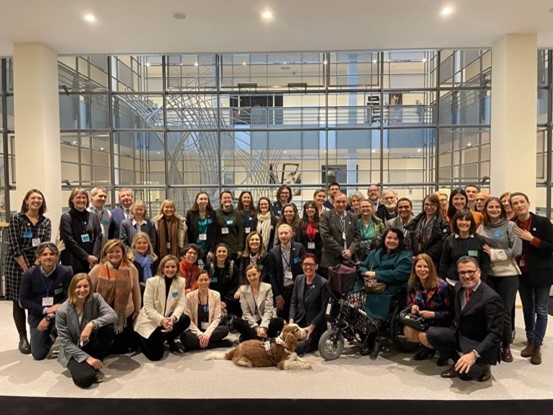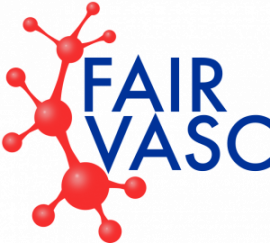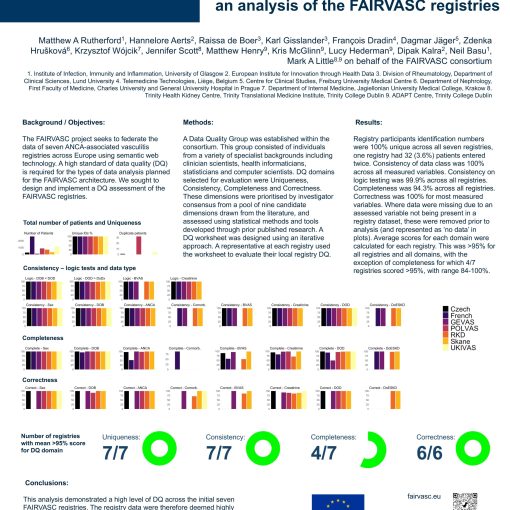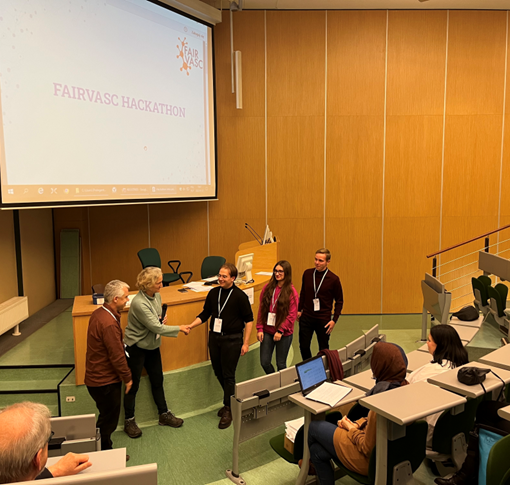by Julie Power (Vasculitis Ireland Awareness)
Thank you to EURORDIS for this opportunity to attend this event, as one of 44 participants from all over Europe.
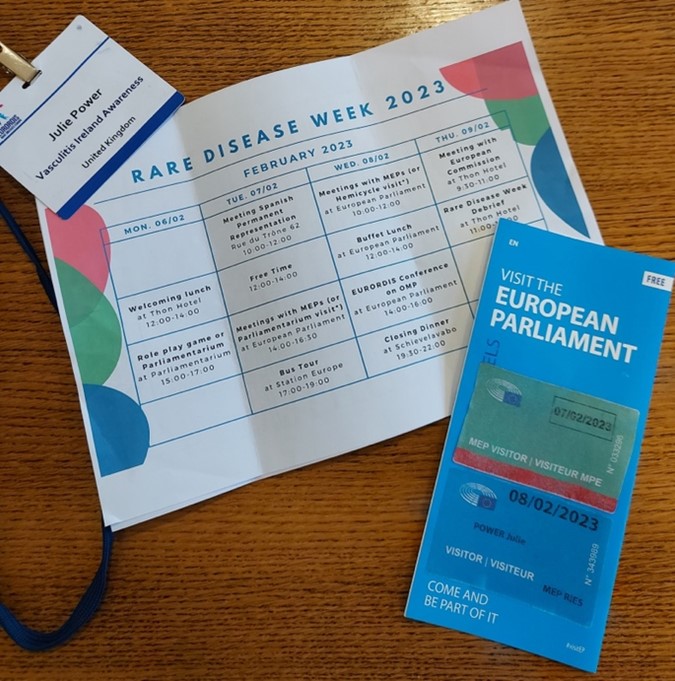
Thank you also to the FAIRVASC project for funding my travel costs (https://fairvasc.eu/ ). This project has received funding from the European Union’s Horizon 2020 research and innovation programme under the EJP RD COFUND-EJP N° 825575)
As you will see from the photo above, the timetable was quite full, but we made the most of every opportunity to learn more from each other and how the European Parliament works. This was the culmination of several months’ work, we had several meetings online with a view to preparing ourselves to advocate at EU level, for those living with rare diseases, using our own lived experience.
We met the Spanish Permanent Representation in the Centre of Scientific Research Council of Spain on Tuesday morning. This was an insightful presentation of what is involved in the 6-month EU presidency from a health perspective.
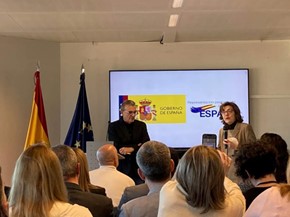
informed us of the long process of decision-making and change, ensuring that the wording of documents is agreeable to The EU Parliament, EU Commission and EU council and thus all 27 states. There was some discussion on how all our asks (detailed below) would be addressed in the forthcoming presidency.
The 6 tasks were prepared for our meetings with MEPs. We had access to a short bio of each beforehand so we were able to plan which tasks were most appropriate to discuss. I was with two ladies from Rare Ireland and between us, we had the whole life span of rare diseases, (Child, Adolescent, Adult.)
The Eurordis Conference on Wednesday presented the views of all stakeholders involved, academics, clinicians, patients, researchers, industry, regulatory bodies, the director of communication responsible for review of a legislative proposal in OMP in EU, the head of Orphan Drugs in EMA, MEPs and EFPIA representative. The publication of the 300 + page proposal for a revised incentive framework for Orphan Medicinal Products, is planned for the first quarter of 2023. There is the support that OMP should be available to all patients throughout Europe who need them, without personal cost, and that continued production should be attractive to Industry within ethical guidelines.
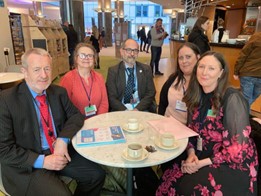
The meeting with the EU Commission was a lively debate on patient involvement in research and how this needs to be measurable and meaningful. I was encouraged by our work in FAIRVASC and the forthcoming PARADISE projects that patient involvement is truly part and parcel of the work, and that the end goal of meaningful impact on daily life is central to our work.
The added benefit was being able to network with patient advocates from all over Europe and exchange contact details to keep in touch with our future work, either in our specific disease area, research, or ERN work. I now have links with the Rare Disease Alliances of Portugal, Austria, Serbia, Czechia, Malta, and Luxemburg and patient links in Romania, Slovenia, and Sweden.
